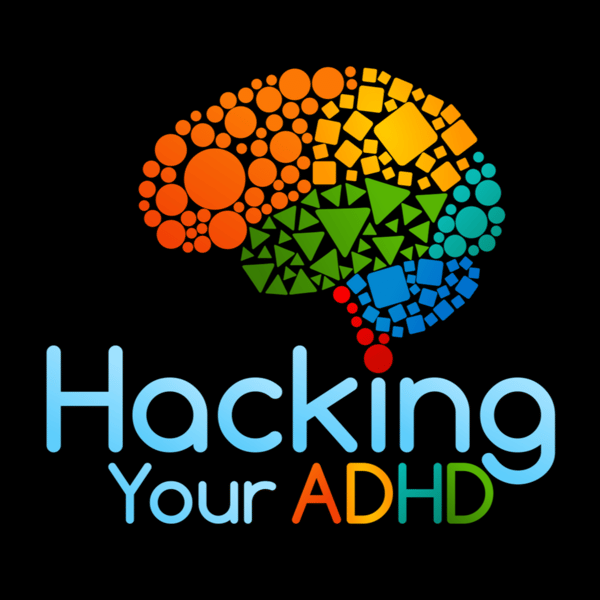When Good Science Goes Bad
Hacking Your ADHD
William Curb
4.8 • 702 Ratings
🗓️ 6 April 2020
⏱️ 14 minutes
🧾️ Download transcript
Summary
Going online has its perks - we've got a wealth of information at our fingertips - but with so much information it can be hard to find the truth. Often we can't find the signal for the noise because well, it is just really noisy. And by noisy, I mean there is a lot of bad information out there.
In today's episode, we're going to be looking specifically at science journalism, but really most of what we're going to be talking about can be applied to everything that we read online. We want to be getting the best information and so we've got to be cautious about our sources. So we're going to be looking at ways that research can be manipulated to support a flimsy claim, why we've got to go beyond reading the headlines and what to watch out for when we are reading those articles.
Find Today's Show Notes at HackingYourADHD.com/badscience
Today's Top Tips
- While most scientist aren't trying to create bad science, lack of funding and time can make many studies suspect. To help validate claims, read into the study methodology and see what other research supports those claims.
- Make sure that you are reading beyond just headlines. Many over zealous reporters will embellish headlines to garner more clicks.
- Watch for words like "proved" about science. Science doesn't prove anything, it just creates evidence that supports a claim or refutes it.
- Be skeptical of claims that seem to good to be true, they usually are.
Transcript
Click on a timestamp to play from that location
| 0:00.0 | Welcome to Hacking Your ADHD, part of the ADHD ReWired Podcast Network. |
| 0:09.0 | I'm your host, William Kerb, and I have ADHD. |
| 0:13.0 | On this podcast, I dig into the tools, tactics, and best practices to help you work with your ADHD brain. |
| 0:20.0 | Going online has its perks. We've got a wealth of |
| 0:22.5 | information at our fingertips, but with so much information it can be hard to find the truth. |
| 0:26.7 | Often we can't find the signal for the noise because well, it's just really noisy. And by |
| 0:32.0 | noisy, I mean there's just a lot of bad information out there. In today's episode, we're |
| 0:37.4 | going to be looking specifically at science journalism, but really |
| 0:40.6 | most of what we're going to be talking about can be applied to everything that we read |
| 0:44.1 | online. |
| 0:44.7 | We want to be getting the best information, and so we've got to be cautious about our sources. |
| 0:49.9 | So we're going to be looking at ways that research can be manipulated to support a flimsy claim, |
| 0:54.8 | why we've got to go beyond reading the headlines, and what to watch out for when we are reading |
| 0:59.0 | those articles. |
| 1:00.0 | If you'd like to follow along on the show notes page, you can find that at Hacking Your ADHD.com |
| 1:06.1 | slash bad science. |
| 1:08.3 | All right, keep on listening to find out how good science can go bad. |
| 1:19.8 | Let's start this episode off with a question. Is coffee good for you? I'll give you a minute to |
| 1:24.9 | gather your thoughts on this one. Well, actually, I'm pretty sure we all had a knee-jerk reaction one way or another. So now I'm going to ask, how do you know? |
| 1:32.1 | What led you to your decision on coffee? Perhaps you read an article that supports your daily |
| 1:36.1 | pick-me-up, or perhaps you don't care if it's good for you. And I'm sure at least some of you lend it on, well, it depends, because, yes, having one cup of coffee in the |
| 1:44.7 | morning is very different from having 37 cups, because that's just too many cups. I mean, |
... |
Please login to see the full transcript.
Disclaimer: The podcast and artwork embedded on this page are from William Curb, and are the property of its owner and not affiliated with or endorsed by Tapesearch.
Generated transcripts are the property of William Curb and are distributed freely under the Fair Use doctrine. Transcripts generated by Tapesearch are not guaranteed to be accurate.
Copyright © Tapesearch 2025.

